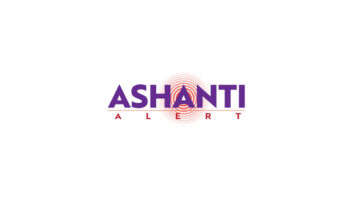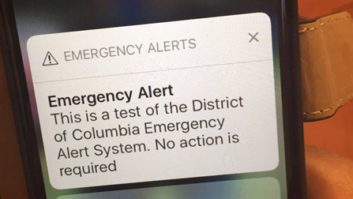XM plans terrestrial wireless operation
Oct 1, 2005 12:00 PM, By Harry Martin
A proposal by XM Satellite Radio to acquire terrestrial Wireless Communications Service (WCS) frequencies has radio broadcasters up in arms. Since the inception of satellite radio, broadcasters have fought the addition of terrestrial radio capability because it would permit satellite operators to compete with local over-the-air radio.
XM now has applied for FCC consent to acquire terrestrial WCS frequencies. The frequencies in question are held by a company that obtained them in an FCC auction of WCS spectrum in 1997 but has not initiated any type of service on them. After the FCC’s Wireless Telecommunications Bureau, which oversees WCS frequencies, recently placed XM’s application in the bureau’s special fast-track �streamlined� processing system, the NAB petitioned the FCC to deny the application or at least remove the application from streamlined processing.
In its application, XM states that grant of the application would allow XM to accelerate development of a system capable of providing a wide range of innovative mobile multimedia subscription services, similar to those under development in other frequency bands by other companies. In its petition, the NAB argues that XM may use the frequencies to provide local radio service and other services that differ from market to market and are sold to subscribers together with XM’s national satellite radio service.
XM recently announced that it will begin broadcasting local emergency alerts in the Washington, DC, market. XM will receive from local government officials in a Washington suburb the same alerts local radio stations receive. XM will broadcast the alerts on the same channel it uses in Washington to broadcast local traffic and weather.
Satellite radio constitutes a direct competitive threat to traditional analog radio in terms of audience and revenue. Digital technology not only provides better sound quality than analog, it makes it possible for satellite operators to reach a national audience, and a mobile audience, with multiple types of programming on a large number of channels. By adding new terrestrial capability, XM also will be able to tailor programs to local markets and sell commercials locally.
Auxiliary licenses to terminate
This fall the Commission will implement a new system under which some auxiliary authorizations will be automatically terminated if a separate notice of completion of construction has not been filed.
All authorizations for fixed broadcast auxiliary facilities, such STLs, ICRs and RPU base stations, will have a limited six-month construction period. (RPU mobile authorizations are not affected.) This construction date is listed on the license authorizations issued by the FCC. Before the expiration of that six-month period, the licensee must notify the FCC that installation of the facility has been completed.
For those licenses that have been issued by the FCC since 2002, similar procedures will be implemented. Licensees in that position should have already received a letter this past spring from the FCC if a construction notification was not filed. Soon, the FCC will send a second reminder. If notifications are not submitted by the stated deadline, the Commission will then issue a public notice indicating that the licenses are cancelled. Licensees will then have 30 days to file a petition for reconsideration or lose their authorizations.
Dateline:
Dec. 1 is the deadline for radio stations in Connecticut, Maine, Massachusetts, New Hampshire, Vermont and Rhode Island to file their 2005 renewal applications, ownership reports and EEO program reports. Also by Dec. 1, renewal applications must be filed by FM translators and LPFM stations in those states.
Dec. 1 is the start date for pre-filing renewal announcements by radio stations in New York and New Jersey, who will be filing their renewal applications on Feb. 1, 2006.
Dec. 1 is the date by which radio stations in Alabama and Georgia must file biennial ownership reports.
Finally, Dec. 1 is the date which radio stations in Alabama, Georgia, Colorado, Minnesota, Montana, North Dakota, South Dakota, Connecticut, Massachusetts, Maine, New Hampshire, Vermont and Rhode Island must place their 2005 EEO public file reports in their public files and post them on their websites (where applicable).
Martin is immediate-past president of the Federal Communications Bar Association and a member of Fletcher, Heald & Hildreth, Arlington, VA. E-mail[email protected].









